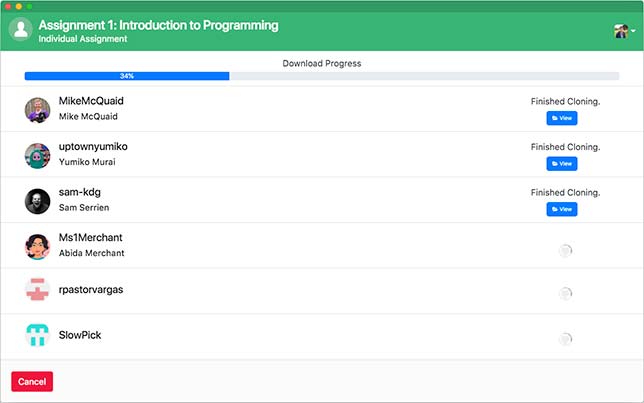GitHub Simplifies Grading Process with New Classroom Assistant
- By Dian Schaffhauser
- 10/08/18

Classroom has made it easy for teachers to set up courses in GitHub, the open-source service that allows developers to share and collaborate on code. So far, according to the organization, some 3 million assignments or "repositories" have been submitted to the platform. Now, GitHub has released Classroom Assistant, a tool intended to help streamline the grading process for teachers using Classroom. The utility allows instructors to download all of their students' GitHub-hosted work, saving them the time it would take to clone each repository manually. The program works on Windows, macOS and Linux, as does the entire education platform.
As with Classroom itself, the new function lets students submit links to their assignment repository to the school's learning management system. Teachers can give feedback through comments in GitHub while still keeping grades in the LMS.
According to Paul Intrevado, an assistant professor of mathematics and statistics at University of San Francisco, "GitHub Classroom takes the intimidation out of using GitHub for noobs." ("Noob" is slang for a newbie in an online community.)
The news came just days after GitHub released a new version of its Student Developer Pack. The pack includes developer tools that are free for academic work. For example, the pack previously offered Amazon Web Services, DigitalOcean, and Travis CI, among others. Now it also includes four new offerings:
- Algolia's application programming interfaces helps students add search functionality to their projects;
- Heroku is a cloud platform for placing apps online;
- JetBrains has contributed integrated development environments for Java, Ruby, Python and several other programming languages; and
- GitKraken added Glo Boards, its issue and task tracker, to help students stay on top of school work.
About the Author
Dian Schaffhauser is a former senior contributing editor for 1105 Media's education publications THE Journal, Campus Technology and Spaces4Learning.